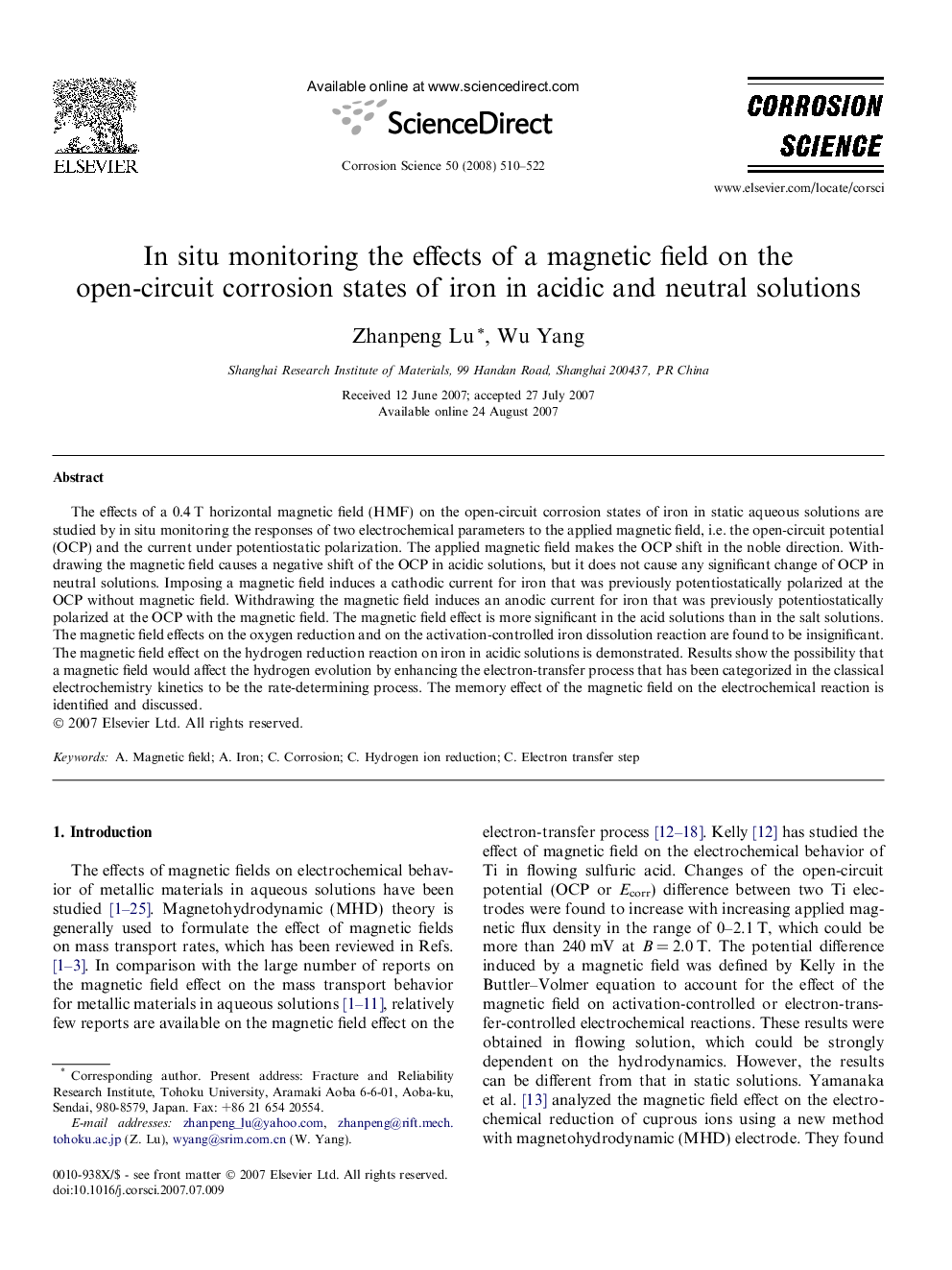| Article ID | Journal | Published Year | Pages | File Type |
|---|---|---|---|---|
| 1471622 | Corrosion Science | 2008 | 13 Pages |
The effects of a 0.4 T horizontal magnetic field (HMF) on the open-circuit corrosion states of iron in static aqueous solutions are studied by in situ monitoring the responses of two electrochemical parameters to the applied magnetic field, i.e. the open-circuit potential (OCP) and the current under potentiostatic polarization. The applied magnetic field makes the OCP shift in the noble direction. Withdrawing the magnetic field causes a negative shift of the OCP in acidic solutions, but it does not cause any significant change of OCP in neutral solutions. Imposing a magnetic field induces a cathodic current for iron that was previously potentiostatically polarized at the OCP without magnetic field. Withdrawing the magnetic field induces an anodic current for iron that was previously potentiostatically polarized at the OCP with the magnetic field. The magnetic field effect is more significant in the acid solutions than in the salt solutions. The magnetic field effects on the oxygen reduction and on the activation-controlled iron dissolution reaction are found to be insignificant. The magnetic field effect on the hydrogen reduction reaction on iron in acidic solutions is demonstrated. Results show the possibility that a magnetic field would affect the hydrogen evolution by enhancing the electron-transfer process that has been categorized in the classical electrochemistry kinetics to be the rate-determining process. The memory effect of the magnetic field on the electrochemical reaction is identified and discussed.
